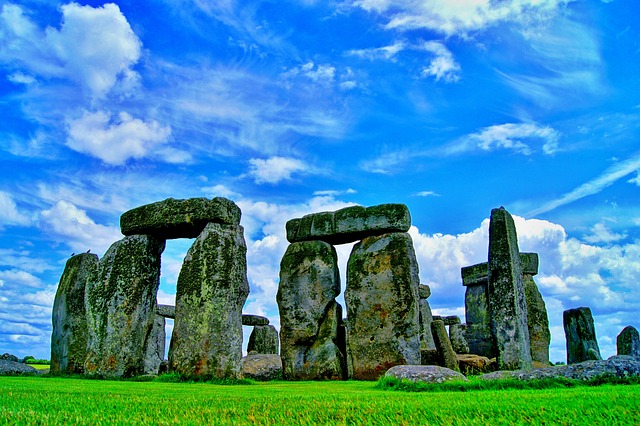
Heritage preservation plays a significant role in maintaining cultural traditions and connecting individuals with their ancestral roots. In a fast-paced modern world, it becomes crucial to prioritize the preservation of our heritage to ensure its survival for future generations.
This article aims to explore the importance of keeping our heritage alive amidst societal advancements and how it aids in finding one's identity and sense of belonging. By delving into the intricacies of heritage preservation, we can better understand its significance in today's society.
Key Takeaways
- Heritage preservation safeguards ancestral roots and cultural identities.
- Cultural traditions represent wisdom and values of ancestors and foster a sense of identity and belonging.
- Connection with ancestral roots through genealogical research and engaging in rituals strengthens the sense of belonging and identity.
- Keeping heritage alive in the modern era requires education, documentation, technology, collaboration, and adapting to modern approaches while respecting freedom of expression.
The Significance of Heritage Preservation
The preservation of heritage holds great importance in the modern world as it allows for the safeguarding of our ancestral roots and cultural identities. Cultural heritage plays a crucial role in education by providing individuals with a deeper understanding of their own history and cultural background. It enables individuals to develop a sense of belonging and identity, fostering pride and appreciation for their roots.
Additionally, heritage preservation contributes to the overall enrichment of society by promoting diversity and inclusivity. Technological advancements have further aided in heritage preservation by providing innovative tools for documentation, conservation, and dissemination of cultural artifacts. Digital platforms allow wider access to heritage resources, making it possible for people around the globe to engage with and learn from different cultures.
Thus, preserving our ancestral roots through heritage becomes not only an educational endeavor but also a means to promote understanding and respect among diverse communities.
Exploring Cultural Traditions
Exploring cultural traditions involves delving into the customs and practices passed down through generations. Traditional practices are an integral part of our cultural heritage, representing the wisdom and values of our ancestors. These traditions connect us to our roots, fostering a sense of identity and belonging. They provide a framework for understanding who we are as individuals and as a community.
The vibrant colors and intricate patterns of traditional clothing evoke a feeling of pride and celebration. Traditional dances and music transport us to a different time, stirring emotions of joy, unity, and nostalgia. Celebrating traditional festivals brings people together, forging strong bonds and creating lasting memories. Traditional cuisine tantalizes the senses with unique flavors that reflect centuries-old culinary techniques.
By exploring these cultural traditions, we not only preserve our ancestral roots but also gain insight into our own values and beliefs. It is through this exploration that we can appreciate the richness of our heritage while embracing freedom in expressing ourselves within its framework.
Connecting with Ancestral Roots
By delving into cultural traditions, individuals can establish a profound connection with their ancestral roots. Genealogical research plays a crucial role in this process, as it allows individuals to trace their family lineage and gain insight into the customs and traditions of their ancestors. Through genealogical research, individuals can uncover information about their family's migration patterns, occupations, and social status throughout history. This knowledge not only provides a deeper understanding of one's heritage but also fosters a sense of belonging and identity.

In addition to genealogical research, engaging in traditional practices further strengthens the connection with ancestral roots. By participating in rituals, ceremonies, and festivities that have been passed down through generations, individuals actively engage with their cultural heritage and preserve it for future generations. These activities provide a tangible link to the past and serve as a reminder of the rich tapestry of traditions that form our collective human history.
Keeping Heritage Alive in the Modern Era
Sustaining cultural traditions in the contemporary era requires active participation and adaptation to ensure their continuity for future generations. In order to keep heritage alive in the modern era, it is important to revive forgotten traditions and explore modern approaches to heritage preservation.
Here are four key ways in which this can be achieved:
Education: Teaching younger generations about their cultural heritage through schools, museums, and community programs can help them develop a sense of pride and identity.
Documentation: Recording oral histories, documenting traditional practices, and preserving artifacts digitally can ensure that valuable knowledge is not lost.
Innovation: Embracing technology and finding innovative ways to showcase cultural traditions can make them more accessible and engaging for a wider audience.
Collaboration: Encouraging collaboration between different communities, organizations, and governments can lead to a collective effort in preserving and promoting cultural heritage.
By employing these strategies, we can successfully keep heritage alive in the face of modern challenges while respecting the freedom of expression that comes with embracing new approaches.
Finding Identity and Belonging through Heritage
Finding a sense of identity and belonging can be achieved through the exploration and understanding of cultural traditions and practices. Identity formation is a complex process, influenced by various factors such as personal experiences, social interactions, and cultural heritage.

Cultural heritage plays a significant role in shaping one's identity as it provides individuals with a connection to their ancestors, history, and values. By engaging with their cultural heritage, individuals gain insight into the customs, beliefs, and rituals that have been passed down through generations. This exploration allows them to develop a deeper understanding of themselves and their place within society.
Furthermore, it fosters a sense of belonging as individuals are able to connect with others who share similar backgrounds and experiences. Ultimately, finding identity and belonging through heritage empowers individuals to embrace their uniqueness while also appreciating the diversity within their community.
Frequently Asked Questions
How can heritage preservation benefit future generations?
Heritage preservation as a form of cultural education benefits future generations by promoting intergenerational understanding. It allows them to connect with their roots, understand their history, and appreciate the diversity and richness of different cultures.
What are some challenges faced in preserving cultural traditions?
Preserving cultural traditions faces challenges such as cultural appropriation, where elements are taken out of context and used for profit or personal gain. Globalization also poses a threat by promoting homogeneity and eroding unique cultural practices.
How can individuals reconnect with their ancestral roots?
Individuals can reconnect with their ancestral roots through cultural tourism, which involves visiting historical sites and participating in traditional activities. DNA testing can also provide insights into one's heritage and help establish connections with distant relatives.
What are some innovative ways to keep heritage alive in the modern era?
Incorporating technology in heritage conservation allows for the preservation and documentation of cultural artifacts. Reviving traditional crafts in contemporary society fosters a sense of identity and connection to ancestral roots, ensuring their continuity in the modern era.
How does finding identity and belonging through heritage contribute to personal growth and well-being?
Finding cultural belonging and a sense of identity through heritage contributes to personal growth and emotional well-being. It fosters a deeper understanding of oneself, strengthens social connections, provides a sense of purpose, and promotes overall psychological resilience and satisfaction in life.
 SportsHollywoodLifestyleFashionHome & GardenTrendsPrivacy PolicyTerms And Conditions
SportsHollywoodLifestyleFashionHome & GardenTrendsPrivacy PolicyTerms And Conditions
